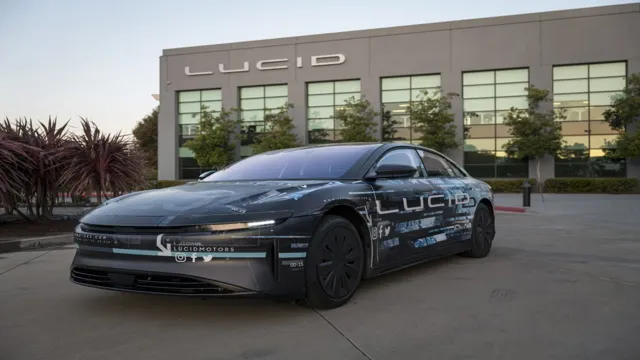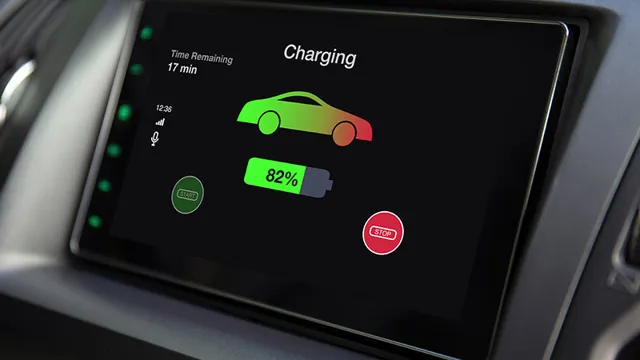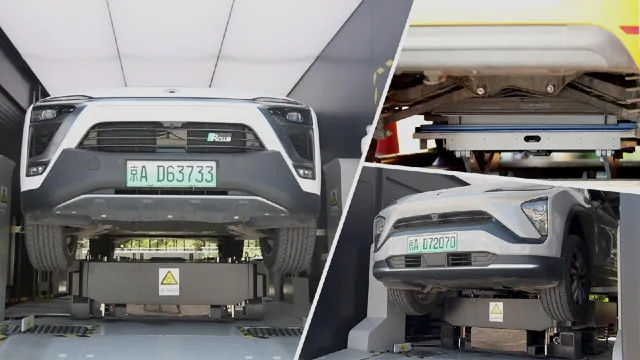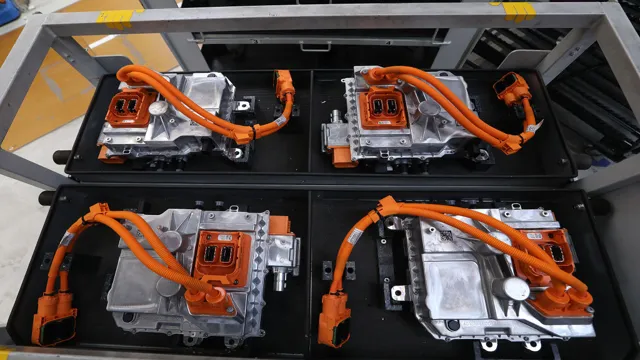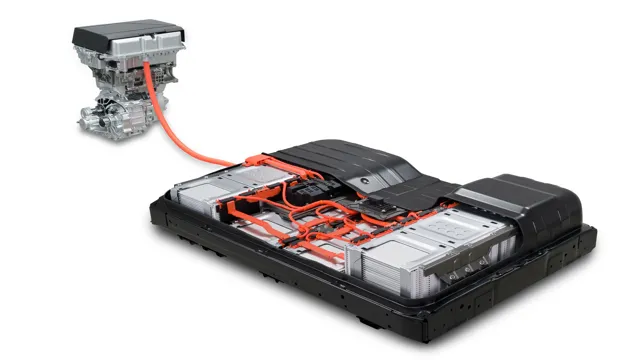Revolutionizing Road Trips: The 500 Mile Electric Car Battery
Have you ever heard of an electric car battery that can run for 500 miles on a single charge? It may sound like science fiction, but it’s quickly becoming a reality. With the rise of electric cars and the demand for longer battery life, researchers and companies alike are racing to develop a battery that can keep these vehicles running for longer periods of time without needing to constantly recharge. The idea of a 500-mile electric car battery is exciting, as it could finally make electric cars a viable and practical option for longer road trips.
So, what is the current state of development for these batteries and how close are we to seeing them on the market? Let’s explore.
Current Limitations in Electric Car Batteries
Many people today are considering making the switch to electric vehicles due to their environmental benefits and long-term cost savings. However, one current limitation in electric car technology is the range of the battery. Most electric cars can only travel around 200-300 miles on a single charge, which may not be practical for long road trips or commuting.
While some high-end electric cars have a range of up to 400 miles, consumers are still eagerly awaiting the development of a 500-mile electric car battery. Such a battery would greatly increase the practicality and convenience of electric cars, making them a more feasible option for daily use. While progress is being made in battery technology, engineers and scientists still have a long way to go before electric cars can truly compete with traditional gas-powered vehicles in terms of range and affordability.
However, with growing consumer demand and continued investment in research and development, we may soon see exciting breakthroughs in electric car technology that could transform the way we travel.
Battery Range Challenges
One of the biggest challenges facing electric vehicle adoption is the current limitations of battery range. While most electric cars can now travel well over 200 miles on a single charge, this is still less than the range of many traditional gasoline-powered cars. This limits the practicality of electric vehicles for long road trips, as drivers must carefully plan their routes to ensure they can reach a charger in time.
Additionally, colder weather can reduce battery range by as much as 40%, putting further strain on electric vehicle owners during the winter months. However, battery technology is constantly advancing, and new breakthroughs are being made every year that promise to extend range and reduce charging times. While electric vehicles may not yet be perfect, they represent an important step towards sustainable transportation, and the future looks bright for battery technology.
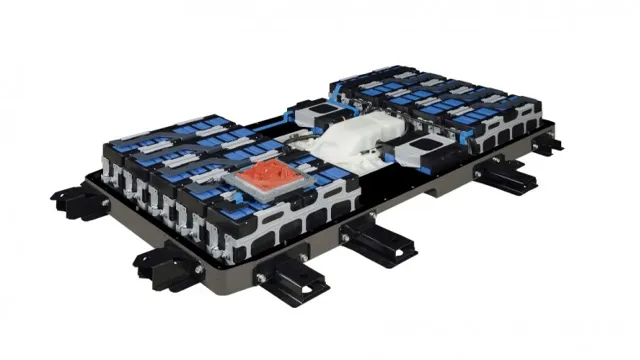
Battery Charging Time
Battery Charging Time While electric cars have shown great strides in recent years, there are still limitations in the current technology. One major issue is battery charging time. Currently, most electric cars take several hours to charge fully, which can be a major inconvenience for drivers who are used to the quick refueling time of traditional gas-powered cars.
This is because electric car batteries have lower power capability and require a longer charging period to achieve full power. However, researchers and manufacturers are working to address this issue by developing new battery technology that will allow for faster charging times. Until then, drivers will need to plan ahead and be mindful of their charging needs in order to ensure that their electric car remains an effective mode of transportation.
Innovations in Battery Technology
Exciting developments in battery technology have brought us one step closer to owning a 500 mile electric car battery. Through advancements in material science and engineering, researchers are now able to create batteries with greater energy density, meaning they can store more energy in a smaller volume, and thus provide greater range for electric vehicles. Some recent breakthroughs include solid-state batteries which have the potential to provide even greater energy densities, and lithium-sulfur batteries which use sulfur instead of cobalt, a typically scarce and expensive material, making them more sustainable.
While some challenges still remain in terms of mass production and cost, the race towards a high-capacity electric car battery is well underway. With technological progress accelerating at unprecedented rates, it’s possible we’ll see electric cars with similar range capabilities to gas-powered cars in the not-too-distant future. Imagine the freedom of a 500-mile electric car battery – you could drive from city to city without ever having to worry about charging up!
Solid State Batteries
Solid state batteries are a promising innovation in battery technology that could transform the way we power our devices. Unlike traditional lithium-ion batteries, which use liquid electrolytes to transfer energy, solid state batteries utilize solid electrolytes. This makes them safer, longer-lasting, and more energy-dense than their liquid counterparts.
One of the most significant advantages of solid state batteries is their ability to charge faster and retain their charge for longer periods of time. This means that we could see the emergence of electric vehicles that can charge in a matter of minutes, rather than hours. Additionally, solid-state batteries are more environmentally friendly than traditional batteries, as they don’t use toxic materials.
Despite the potential benefits, solid-state batteries are still in the early stages of development, and more research is needed to optimize them for commercial use. Nonetheless, they hold great promise for the future of energy storage and could revolutionize the way we power our world.
Graphene Batteries
Graphene batteries are an innovative solution to traditional lithium-ion batteries, offering improvements to charge time, battery density, and overall capacity. Graphene batteries are made using a material called graphene, which is a super-thin layer of carbon atoms that have unique electrical and mechanical properties. These batteries are capable of charging up to five times faster and holding up to five times more energy than traditional batteries, making them ideal for use in electric vehicles.
Graphene batteries are also more environmentally friendly, as they are made using carbon-based materials that are abundant and renewable. With ongoing advancements in battery technology, graphene batteries have the potential to revolutionize the way we power our devices, making them more efficient, cost-effective, and sustainable for years to come.
Lithium-Sulfur Batteries
Lithium-sulfur batteries are a promising innovation in the field of battery technology. Unlike traditional lithium-ion batteries, which use a graphite anode and a lithium cobalt oxide cathode, lithium-sulfur batteries use a sulfur-based cathode. This makes them more efficient and energy-dense, allowing for longer battery life and faster charging times.
In addition, sulfur is relatively abundant and inexpensive, making lithium-sulfur batteries a cost-effective alternative to traditional batteries. However, there are still challenges that need to be overcome, such as the tendency of sulfur to dissolve in the electrolyte and react with the lithium anode. Researchers are working on developing new materials and structures to address these issues and make lithium-sulfur batteries a viable option for a wide range of applications.
Overall, lithium-sulfur batteries represent an exciting breakthrough in battery technology, with the potential to revolutionize the way we power our devices and vehicles.
Future of Electric Car Batteries
The future of electric car batteries is looking brighter than ever, especially when it comes to the distance they can cover on a single charge. The development of a 500 mile electric car battery is just around the corner. This would mean that drivers wouldn’t have to worry as much about running out of power on long journeys and could potentially go weeks without needing to charge their car.
This increase in battery life is partly due to advancements in battery technology, as well as the integration of renewable energy sources to power electric cars. As car manufacturers continue to pour resources into developing these batteries, they’re sure to become more affordable and accessible to the masses. With a 500 mile electric car battery, the future of transportation is looking cleaner, greener and more efficient than ever before.
Partnerships for Improved Battery Tech
The future of electric car batteries is constantly evolving, and one promising avenue for innovation is partnerships between companies and organizations. By collaborating, experts can share their expertise and resources, leading to improved battery technology and more efficient, sustainable electric vehicles. For example, in 2020, Tesla announced a partnership with battery manufacturer CATL, which will provide batteries with improved lifespan, energy density, and safety.
Similarly, Ford has joined forces with battery developer Solid Power to create new, high-performance batteries. Partnerships like these offer exciting developments for the future of electric cars, making them an increasingly reliable and practical mode of transportation. As the technology continues to improve, electric vehicles will become even more accessible and beneficial for both individuals and the environment.
Implications for the Automotive Industry
The future of electric car batteries is a highly discussed topic in the automotive industry. With the push towards more environmentally friendly and efficient modes of transportation, the demand for electric vehicles is expected to increase in the coming years. This means that the development of more advanced and long-lasting batteries is crucial for the success of this market.
Advances in battery technology are being made every day, with companies working hard to improve battery life and range. This includes the use of new materials such as solid-state lithium-ion batteries, which can store more energy and have a much longer lifespan. Additionally, there is a push for faster charging capabilities, making electric vehicles more convenient and practical for everyday use.
In conclusion, the future of electric vehicle batteries looks bright as the industry continues to invest in research and development, leading to more efficient and sustainable options for consumers.
Conclusion
In conclusion, the development of a 500 mile electric car battery is a game-changer for the automotive industry. Not only does it eliminate range anxiety for electric vehicle drivers, but it also signals a shift towards a more sustainable and environmentally friendly mode of transportation. As we continue to push the boundaries of innovation and technology, it’s clear that the future of mobility is electric.
So let’s charge up and hit the road to a cleaner, greener tomorrow!”
FAQs
What is the current range of electric cars with a 500 mile battery?
Currently, there are no electric cars on the market with a 500 mile battery range. However, Tesla has announced plans to release a new version of the Model S with a 520+ mile range.
How long does it take to charge a 500 mile electric car battery?
The charging time for a 500 mile electric car battery depends on the charging speed and the car’s battery capacity. With a fast charging station, it can take as little as 45 minutes to charge a portion of the battery. A full charge using a home charger can take anywhere from 8 to 15 hours.
Are there any downsides to a 500 mile electric car battery?
The biggest downside of a 500 mile electric car battery is the cost. Producing a battery with such high capacity is still expensive and can significantly increase the car’s price. Additionally, a larger battery means a heavier car, which can affect performance and handling.
Will there be more electric cars with 500 mile batteries in the future?
It is likely that more electric cars with 500 mile batteries will be introduced in the future as battery technology continues to improve. However, it may take a few years to become widely available and affordable for consumers.

